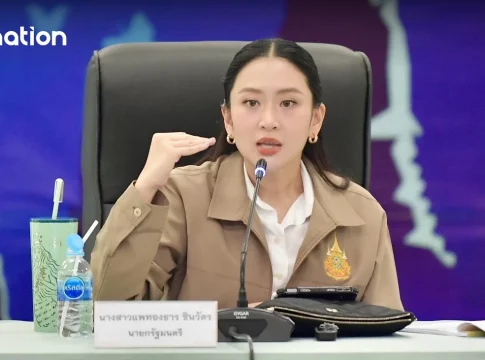Border Tensions Prompt Urgent Meeting in Thailand
Prime Minister Addresses Economic and Humanitarian Concerns
In light of escalating border tensions with Cambodia, Thai Prime Minister Paetongtarn Shinawatra convened a critical meeting on Thursday to address the significant impacts of recent border closures. The gathering took place at Aranyaprathet School in Sa Kaeo Province, a region heavily affected by the ongoing situation, and included key officials such as General Natthapon Nakpanich, Deputy Defence Minister, along with representatives from various ministries and local government bodies.
Economic Impact Under Scrutiny
During the meeting, Prime Minister Shinawatra expressed deep concern over the economic repercussions stemming from the shuttering of six permanent and ten temporary checkpoints along the Thai-Cambodian border. These closures span multiple provinces, including Sa Kaeo, Surin, Ubon Ratchathani, Chonburi, Trat, and Chanthaburi. The absence of open borders is not only impacting trade but also affecting livelihoods on both sides of the border.
“The shutdown of these vital checkpoints is detrimental to the economies of both Thailand and Cambodia,” stated Jirayu Houngsub, spokesman for the Prime Minister’s Office. “We must take immediate measures to mitigate these impacts and support affected communities.”
Humanitarian Measures for Affected Citizens
Shinawatra highlighted the humanitarian dimension of the border closures, acknowledging the struggles faced by Thai and Cambodian citizens alike. In a response to the ongoing crisis, the Burapha Task Force implemented new protocols on June 25, facilitating limited access for Cambodian residents wishing to return home.
Under these new regulations, Cambodians holding Border Passes issued by Banteay Meanchey province will be allowed to cross the border, albeit under strict conditions. Personal vehicles remain prohibited, with only bicycles permitted for transiting individuals. The border crossing is now restricted to specified time slots, accommodating a limited number of people per session:
- 08:00–09:30 (Capacity: 300 individuals)
- 10:30–12:00 (Capacity: 300 individuals)
- 13:00–15:00 (Capacity: 400 individuals)
These measures, while aimed at facilitating safe passage, underscore the ongoing complexities of international relations in the region.
Looking Ahead
As the situation evolves, officials are monitoring the implications of these border closures closely, acknowledging the urgent need for a balanced approach that considers both economic stability and humanitarian needs. “We are committed to finding solutions that will benefit both nations,” added Houngsub.
Further developments are anticipated as negotiations continue to address the broader implications of these tensions, reflecting a delicate balancing act in regional diplomacy.

Focuses on crime, public safety, and regional events.
Bio: Marcus is a community-based journalist passionate about reporting impactful stories that matter most to readers.

